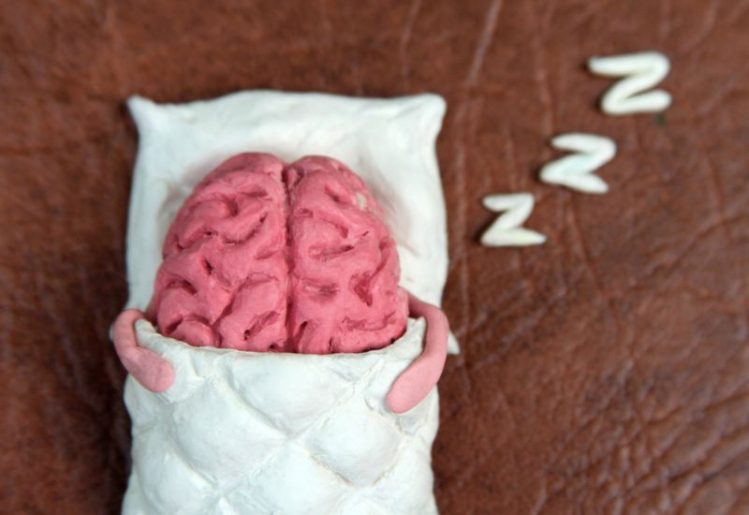5 Bad Habits That Harm Your Brain
Habits That Harm Your Brain
Many people inadvertently sabotage their brain health by engaging in harmful activities or an unhealthy lifestyle. Here are just a few of the most common habits that could be harming your brain.
Not Getting Enough Sleep
 Sleep is how your body and mind refresh and repair after the events of the day. Not getting enough sleep can wreak havoc on your cognitive function, leading to the potential permanent loss of brain cells. This makes it crucial to create a healthy rest environment that will support good sleep habits.
Sleep is how your body and mind refresh and repair after the events of the day. Not getting enough sleep can wreak havoc on your cognitive function, leading to the potential permanent loss of brain cells. This makes it crucial to create a healthy rest environment that will support good sleep habits.
Poor Diet Choices
What you put into your mouth has a direct effect on your mental fitness. Indulging in excessive amounts of sugary or fatty foods can raise the risk that you develop a neurodegenerative disorder as you age. Poor nutritional habits also raise the threat of learning disorders, depression, anxiety and hyperactivity.
Similarly, it is important to nourish your body with the right foods, including plenty of antioxidants, flavonoids and omega-3 fatty acids. These nutrients will decrease the levels of oxidative stress and inflammation in the brain.
Isolation
While it may be tempting to hole up at home and relax, spending too much time in isolation can actually be detrimental to brain health. Numerous studies have pointed to the impact of an isolated existence in regard to how your brain processes information and emotions.
Physical Inactivity
There is no part of your health that a lack of physical exercise does not touch, including the fitness of your brain. Working up a sweat releases the feel-good hormones known as endorphins, helping to improve mood as well as cognitive and memory function.
Excessive Stress
It stands to reason that too much stress can do a number on your cognitive health. Although some level of stress is healthy, excessive pressure can hinder your ability to cope with life, leaving you feeling depressed, anxious and irritable. Be sure to seek help from a therapist if you feel that too much stress is negatively impacting your life.
How to Protect Brain Health
You do not have to accept decreasing cognitive health as a byproduct of aging. Taking steps now to protect your brain can go a long way in maintaining healthy cognitive function both now and down the road. Here are a few ideas to get you started.
Supplement Wisely
The use of supplements can play a pivotal role in your brain health. A dedicated supplement such as Neurochron contains the vital balance of vitamins, minerals and plant extracts designed to support optimal mental fitness, memory retention and concentration. This type of supplement serves as an insurance policy to fill in any of the missing gaps that you may have in your regular diet. Other nutrients such as glucosamine have also been shown to benefit brain health.
Exercise
Since physical inactivity is a risk factor for poor brain health, this means that you need to be intentional about exercising to guard its function. Being active has been shown to protect against a variety of neurodegenerative disorders such as dementia and Alzheimer's disease.
You should aim to get at least 30 minutes of moderate physical activity at least five days of the week. Feel free to break up this exercise into more manageable chunks if that works better with your schedule.
Manage Stress
Being intentional about managing stress is important in guarding against cognitive deterioration. In addition to addressing the stress-inducing issues in your life, you need to be purposeful about engaging in relaxing activities. Whatever brings you peace and calmness is a good choice. A key component of managing stress is also getting enough sleep each night, making it critical that you develop good rest habits.
Get Social
 If you needed an excuse to head out for a girl's night or take a weekend trip with friends, this is it. Scientists have long known that social engagement can increase overall cognitive health. Social engagement has a cumulative effect, meaning that you will see a greater benefit if you get out and enjoy those around you more often.
If you needed an excuse to head out for a girl's night or take a weekend trip with friends, this is it. Scientists have long known that social engagement can increase overall cognitive health. Social engagement has a cumulative effect, meaning that you will see a greater benefit if you get out and enjoy those around you more often.
Stimulate Your Brain
You cannot expect your brain to fire on all cylinders without continuously nurturing its development. Taking proactive steps to stimulate your brain by reading, doing puzzles and other types of mind work can help to keep your mind functioning as nature intended.
Familiarizing yourself with the greatest threats to your mental fitness and taking intentional action to reverse this harm is one of the best things that you can do for your brain, and for your overall health.





